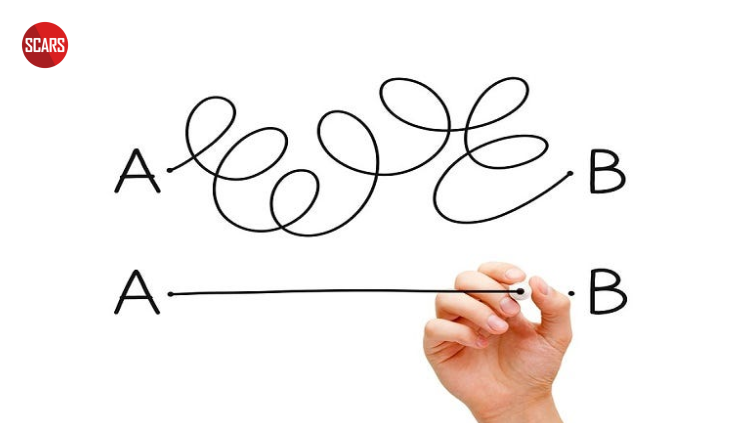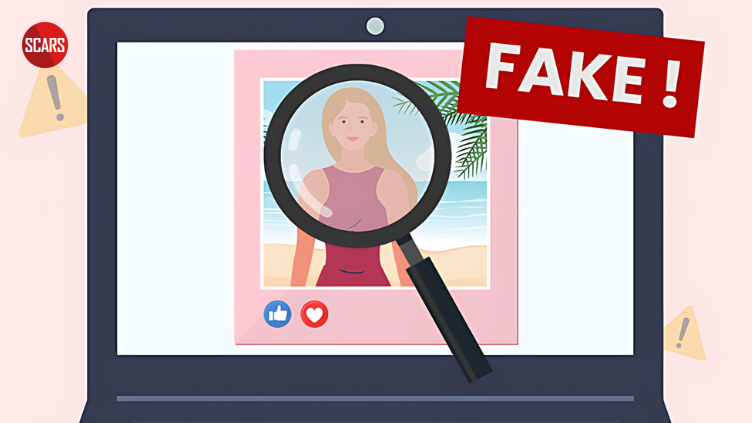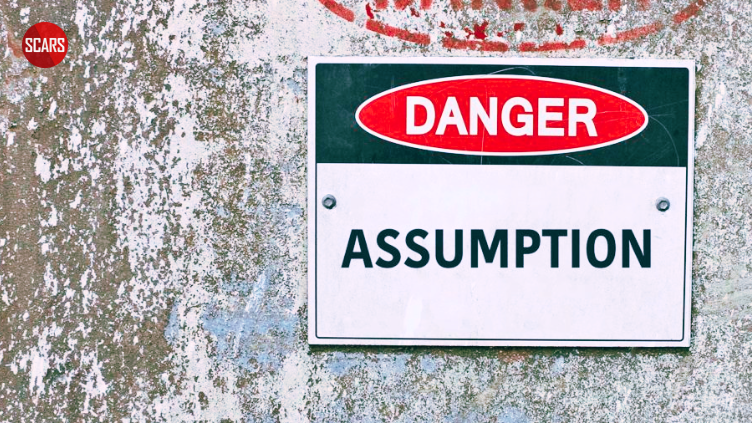Scam Victims And The Law Of Parsimony
Helping Scam Victims to Understand the Difference Between Real vs. Assumptions & Urban Legends!
Primary Category: Scam Victim Recovery Psychology
Author:
• Tim McGuinness, Ph.D., DFin, MCPO, MAnth – Anthropologist, Scientist, Polymath, Director of the Society of Citizens Against Relationship Scams Inc.
About This Article
The Law of Parsimony, also known as Occam’s Razor, suggests that the simplest explanation is usually the correct one. This principle can be particularly helpful for scam victims as they navigate their recovery, helping them stay grounded in reality.
Despite sounding harsh, the goal is to help victims understand their mistakes and misconceptions to properly recover. After a scam, victims often cling to fantasies and false beliefs, making them vulnerable to being rescammed and seeking fantastical answers to their problems. Common misbeliefs include the effectiveness of exposing scammers, scam baiting, not reporting to the police, and thinking they were hypnotized.
Victims also tend to underestimate the psychological impact of being scammed, denying the need for recovery and assuming they are not traumatized. They might distrust nonprofits or believe they can retrieve their money themselves. The reality is that scams are complex crimes causing significant trauma, and the simplest explanations are usually correct. Seeking professional help is crucial. Our mission is to debunk myths and support scam victims in recovery.
Understanding and applying the Law of Parsimony helps victims focus on straightforward explanations and professional support, guiding them toward meaningful healing.
Note: This article is intended for informational purposes and does not replace professional medical advice. If you are experiencing distress, please consult a qualified mental health professional.

A Note About Labeling!
We often use the term ‘scam victim’ in our articles, but this is a convenience to help those searching for information in search engines like Google. It is just a convenience and has no deeper meaning. If you have come through such an experience, YOU are a Survivor! It was not your fault. You are not alone! Axios!
The Law of Parsimony and Scam Victims: Understanding and Recovery – Avoiding False Beliefs
The Law of Parsimony, also known as Occam’s Razor, is a principle that suggests the simplest explanation is usually the correct one but this can be hard for scam victims to accept.
This concept can be profoundly helpful for scam victims as they navigate their recovery by helping them stay grounded in reality. While this might sound harsh or accusatory, our intention is to help victims understand their mistakes and misconceptions so they can properly recover from their experiences.
Post-Scam Fantasies and Fairy Tales
One of the common observations about scam victims is that their belief in fantasies and fairy tales often persists even after the scam ends. This tendency contributes significantly to their vulnerability to being rescammed and their search for fantastical answers to their problems.
Common Fantasies and Misbeliefs
Exposing Scammers: Victims often believe that exposing scammers will shame them into stopping or magically getting them arrested. Unfortunately, this is not true. Scammers are usually part of organized crime networks that are not easily deterred by public exposure.
Scam Baiting: Some victims engage in scam baiting, believing that wasting a scammer’s time will slow down or stop scamming activities. However, this rarely has a significant impact and can sometimes put victims in more danger.
Not Reporting to the Police: Many victims feel that reporting scams to the police is futile because they believe no scammers are ever arrested. In reality, law enforcement agencies are increasingly successful in apprehending and prosecuting scammers.
Hating Scammers: Victims may think that harboring hatred towards scammers will help them avoid future scams and aid in their recovery. However, anger often hinders the healing process and can exacerbate trauma.
Believing in Hypnosis or Brainwashing: Some victims attribute their susceptibility to scams to brainwashing or hypnosis, believing there must have been some deep psychological manipulation at play. While scams do involve manipulation, they primarily exploit basic human emotions and vulnerabilities. Hypnosis and brainwashing do not apply. However, the manipulation and control mechanisms that do apply are even more impactful in controlling victims.
Denying the Need for Recovery: Victims often underestimate the psychological impact of being scammed, believing they just need to “get over it” without professional help. This can lead to untreated trauma and long-term psychological issues.
Assuming They Are Not Traumatized: Similarly, victims may believe they are simply upset rather than traumatized, delaying their recovery and increasing the risk of developing serious mental health conditions.
Assuming Expertise: Having been scammed, some victims feel they are now experts on the subject and can help others without further education or training. This can lead to spreading misinformation and failing to address their own recovery needs.
Distrusting Nonprofits: There is a misconception that nonprofits asking for donations are also scammers. While it’s important to verify the legitimacy of organizations, dismissing all nonprofits can prevent victims from receiving valuable support.
Attempting to Retrieve Money Themselves: Some victims believe they can personally retrieve their lost money by traveling to places like Africa, based on false information provided by scammers. This is extremely dangerous and often results in further harm or loss.
The Reality Check
The reality is that the simplest explanations are usually the correct ones. Scams are complex crimes that result in significant psychological trauma for victims. It’s critical for victims to seek professional support providers (such as SCARS) and therapist help early on to prevent the development of more serious traumatic responses or psychological disorders.
The SCARS Institute Mission
Our mission is to debunk these common myths and help scam victims recover from their traumatizing experiences. We always recommend that victims find local trauma counselors because trauma does not simply go away. Professional therapists can provide the necessary support and listen to the reality of the situation. Find appropriate counseling here: counseling.AgainstScams.org
Seeking Help
If you recognize any of these beliefs in yourself, we urge you to seek help. Like with alcoholism and substance abuse, most scam victims do not recover because they do not get the help they need. You have a choice: continue to believe in urban legends or commit to your recovery.
Conclusion
The Law of Parsimony teaches us that the simplest answers are usually the right ones. For scam victims, accepting the reality of their situation and seeking professional help is crucial for recovery. We are here to support you, but you must be willing to accept help and face the truth. If you want to recover, reach out to us. We are here to help you.

What is the Law of Parsimony?
Understanding the Law of Parsimony
The Law of Parsimony, also known as Occam’s Razor, is a principle that emphasizes simplicity in explaining phenomena. This concept is attributed to the English Franciscan friar William of Ockham, a philosopher and theologian from the 14th century. The principle suggests that when presented with competing hypotheses or explanations for an event, one should select the one that makes the fewest assumptions and is thus the simplest.
Key Elements of the Law of Parsimony
Simplicity Over Complexity: The core idea of the Law of Parsimony is to prefer explanations that require the least amount of speculation. This means choosing the hypothesis that explains the data most straightforwardly without introducing unnecessary complexities.
Fewer Assumptions: This principle advises minimizing the number of assumptions required to reach a conclusion. The more assumptions an explanation requires, the more room there is for error or alternative interpretations.
Practical Application: The Law of Parsimony is widely applied in various fields, including science, philosophy, and medicine. In scientific research, for example, simpler theories are preferred until more complex theories provide additional explanatory power or predictive accuracy.
Examples of the Law of Parsimony
Scientific Theories: In physics, when comparing two theories that predict the same phenomena, the one that uses fewer variables and assumptions is typically preferred. For instance, the heliocentric model of the solar system is simpler and requires fewer assumptions than the geocentric model.
Medical Diagnosis: In medicine, doctors often use the principle of Occam’s Razor when diagnosing a patient. If a single diagnosis can explain multiple symptoms, it is preferred over multiple diagnoses.
Relevance to Scam Victims
For scam victims, the Law of Parsimony can be a valuable tool in understanding their experiences and guiding their recovery. After a scam, victims may be inclined to believe in complex, fantastical explanations for what happened to them. However, applying the Law of Parsimony can help them see that the simplest explanations are often the most accurate:
Rationalizing the Scam: Instead of believing they were hypnotized or brainwashed, victims can accept that they were manipulated through common psychological tactics that exploit basic human emotions.
Focusing on Recovery: Recognizing that trauma and emotional distress are natural responses to being scammed, and seeking straightforward professional help, is more effective than pursuing convoluted theories or revenge fantasies.
Conclusion
The Law of Parsimony, or Occam’s Razor, emphasizes the importance of simplicity and minimal assumptions in forming explanations. For scam victims, understanding and applying this principle can help them navigate their recovery more effectively, avoiding the pitfalls of complex and unfounded beliefs. By focusing on straightforward explanations and professional support, victims can better understand their experiences and take meaningful steps toward healing.
-/ 30 /-
What do you think about this?
Please share your thoughts in a comment below!
Statement About Victim Blaming
SCARS Institute articles examine different aspects of the scam victim experience, as well as those who may have been secondary victims. This work focuses on understanding victimization through the science of victimology, including common psychological and behavioral responses. The purpose is to help victims and survivors understand why these crimes occurred, reduce shame and self-blame, strengthen recovery programs and victim opportunities, and lower the risk of future victimization.
At times, these discussions may sound uncomfortable, overwhelming, or may be mistaken for blame. They are not. Scam victims are never blamed. Our goal is to explain the mechanisms of deception and the human responses that scammers exploit, and the processes that occur after the scam ends, so victims can better understand what happened to them and why it felt convincing at the time, and what the path looks like going forward.
Articles that address the psychology, neurology, physiology, and other characteristics of scams and the victim experience recognize that all people share cognitive and emotional traits that can be manipulated under the right conditions. These characteristics are not flaws. They are normal human functions that criminals deliberately exploit. Victims typically have little awareness of these mechanisms while a scam is unfolding and a very limited ability to control them. Awareness often comes only after the harm has occurred.
By explaining these processes, these articles help victims make sense of their experiences, understand common post-scam reactions, and identify ways to protect themselves moving forward. This knowledge supports recovery by replacing confusion and self-blame with clarity, context, and self-compassion.
Additional educational material on these topics is available at ScamPsychology.org – ScamsNOW.com and other SCARS Institute websites.
-/ 30 /-
What do you think about this?
Please share your thoughts in a comment below!
SCARS LINKS: AgainstScams.org RomanceScamsNOW.com ContraEstafas.org ScammerPhotos.com Anyscam.com ScamsNOW.com
reporting.AgainstScams.org support.AgainstScams.org membership.AgainstScams.org donate.AgainstScams.org shop.AgainstScams.org
youtube.AgainstScams.org linkedin.AgainstScams.org facebook.AgainstScams.org
One Comment
Leave A Comment
Important Information for New Scam Victims
- Please visit www.ScamVictimsSupport.org – a SCARS Website for New Scam Victims & Sextortion Victims.
- SCARS Institute now offers its free, safe, and private Scam Survivor’s Support Community at www.SCARScommunity.org – this is not on a social media platform, it is our own safe & secure platform created by the SCARS Institute especially for scam victims & survivors.
- SCARS Institute now offers a free recovery learning program at www.SCARSeducation.org.
- Please visit www.ScamPsychology.org – to more fully understand the psychological concepts involved in scams and scam victim recovery.
If you are looking for local trauma counselors, please visit counseling.AgainstScams.org
If you need to speak with someone now, you can dial 988 or find phone numbers for crisis hotlines all around the world here: www.opencounseling.com/suicide-hotlines
Statement About Victim Blaming
Some of our articles discuss various aspects of victims. This is both about better understanding victims (the science of victimology) and their behaviors and psychology. This helps us to educate victims/survivors about why these crimes happened and not to blame themselves, better develop recovery programs, and help victims avoid scams in the future. At times, this may sound like blaming the victim, but it does not blame scam victims; we are simply explaining the hows and whys of the experience victims have.
These articles, about the Psychology of Scams or Victim Psychology – meaning that all humans have psychological or cognitive characteristics in common that can either be exploited or work against us – help us all to understand the unique challenges victims face before, during, and after scams, fraud, or cybercrimes. These sometimes talk about some of the vulnerabilities the scammers exploit. Victims rarely have control of them or are even aware of them, until something like a scam happens, and then they can learn how their mind works and how to overcome these mechanisms.
Articles like these help victims and others understand these processes and how to help prevent them from being exploited again or to help them recover more easily by understanding their post-scam behaviors. Learn more about the Psychology of Scams at www.ScamPsychology.org
SCARS INSTITUTE RESOURCES:
If You Have Been Victimized By A Scam Or Cybercrime
♦ If you are a victim of scams, go to www.ScamVictimsSupport.org for real knowledge and help
♦ SCARS Institute now offers its free, safe, and private Scam Survivor’s Support Community at www.SCARScommunity.org/register – this is not on a social media platform, it is our own safe & secure platform created by the SCARS Institute especially for scam victims & survivors.
♦ Enroll in SCARS Scam Survivor’s School now at www.SCARSeducation.org
♦ To report criminals, visit https://reporting.AgainstScams.org – we will NEVER give your data to money recovery companies like some do!
♦ Follow us and find our podcasts, webinars, and helpful videos on YouTube: https://www.youtube.com/@RomancescamsNowcom
♦ Learn about the Psychology of Scams at www.ScamPsychology.org
♦ Dig deeper into the reality of scams, fraud, and cybercrime at www.ScamsNOW.com and www.RomanceScamsNOW.com
♦ Scam Survivor’s Stories: www.ScamSurvivorStories.org
♦ For Scam Victim Advocates visit www.ScamVictimsAdvocates.org
♦ See more scammer photos on www.ScammerPhotos.com
You can also find the SCARS Institute’s knowledge and information on Facebook, Instagram, X, LinkedIn, and TruthSocial
Psychology Disclaimer:
All articles about psychology and the human brain on this website are for information & education only
The information provided in this and other SCARS articles are intended for educational and self-help purposes only and should not be construed as a substitute for professional therapy or counseling.
Note about Mindfulness: Mindfulness practices have the potential to create psychological distress for some individuals. Please consult a mental health professional or experienced meditation instructor for guidance should you encounter difficulties.
While any self-help techniques outlined herein may be beneficial for scam victims seeking to recover from their experience and move towards recovery, it is important to consult with a qualified mental health professional before initiating any course of action. Each individual’s experience and needs are unique, and what works for one person may not be suitable for another.
Additionally, any approach may not be appropriate for individuals with certain pre-existing mental health conditions or trauma histories. It is advisable to seek guidance from a licensed therapist or counselor who can provide personalized support, guidance, and treatment tailored to your specific needs.
If you are experiencing significant distress or emotional difficulties related to a scam or other traumatic event, please consult your doctor or mental health provider for appropriate care and support.
Also read our SCARS Institute Statement about Professional Care for Scam Victims – click here
If you are in crisis, feeling desperate, or in despair, please call 988 or your local crisis hotline – international numbers here.
More ScamsNOW.com Articles
A Question of Trust
At the SCARS Institute, we invite you to do your own research on the topics we speak about and publish. Our team investigates the subject being discussed, especially when it comes to understanding the scam victims-survivors’ experience. You can do Google searches, but in many cases, you will have to wade through scientific papers and studies. However, remember that biases and perspectives matter and influence the outcome. Regardless, we encourage you to explore these topics as thoroughly as you can for your own awareness.















![NavyLogo@4x-81[1] Scam Victims And The Law Of Parsimony - 2024](https://scamsnow.com/wp-content/uploads/2025/04/NavyLogo@4x-811.png)









![scars-institute[1] Scam Victims And The Law Of Parsimony - 2024](https://scamsnow.com/wp-content/uploads/2025/04/scars-institute1.png)

![niprc1.png1_-150×1501-1[1] Scam Victims And The Law Of Parsimony - 2024](https://scamsnow.com/wp-content/uploads/2025/04/niprc1.png1_-150x1501-11.webp)
I can see how these misconceptions might lead to further trauma and delay in healing. Thank you for sharing this information.